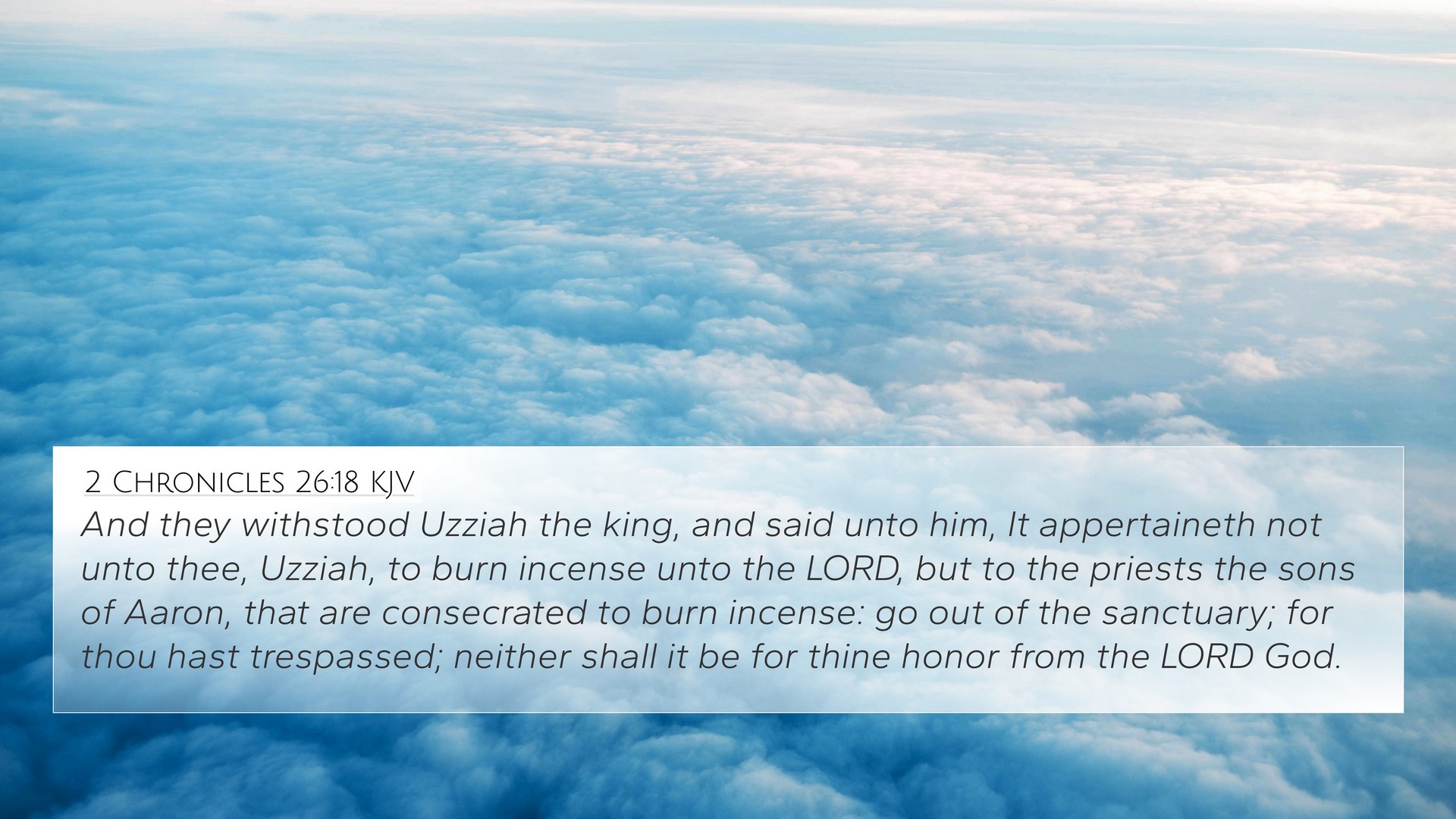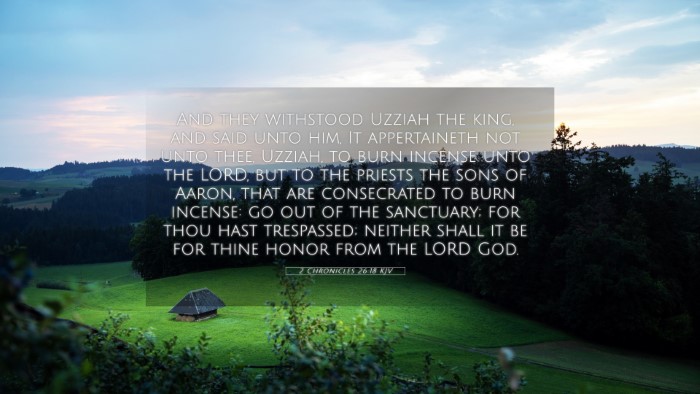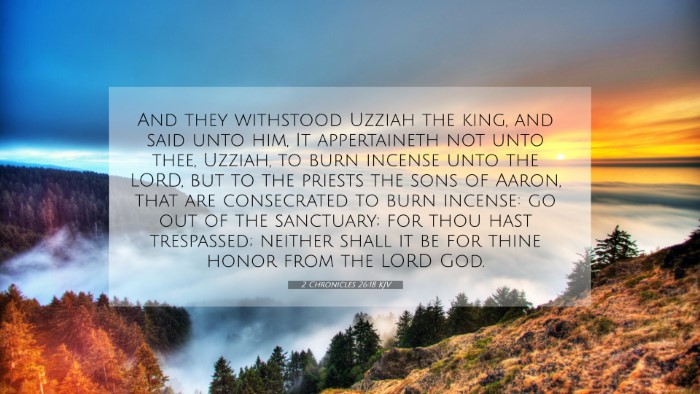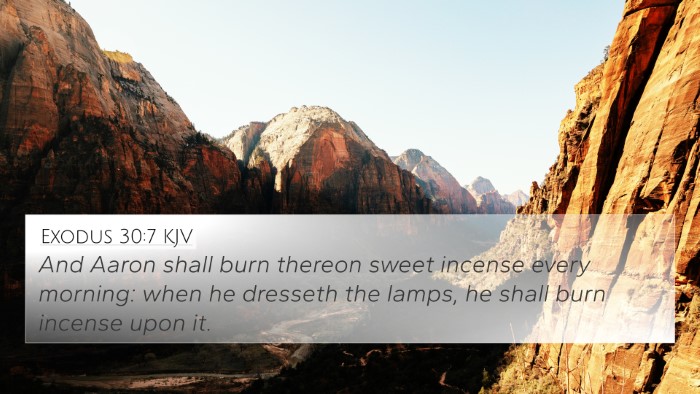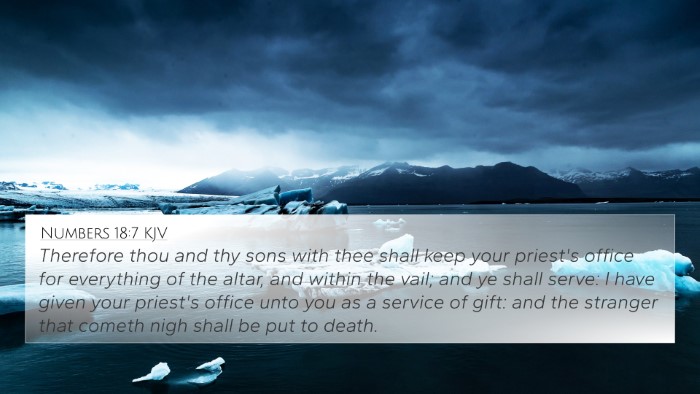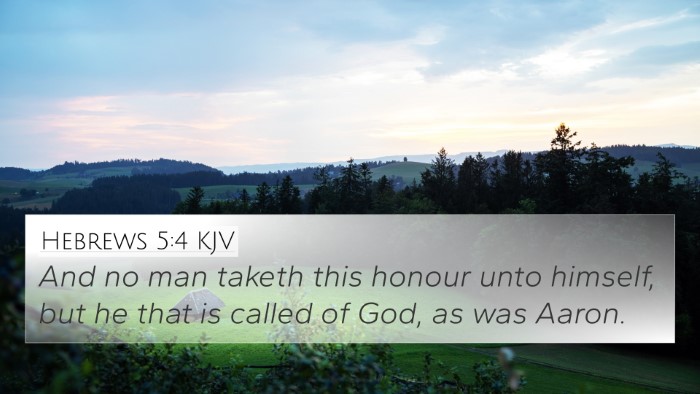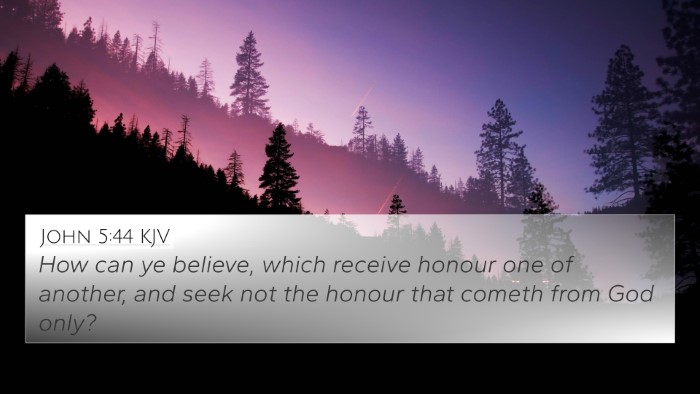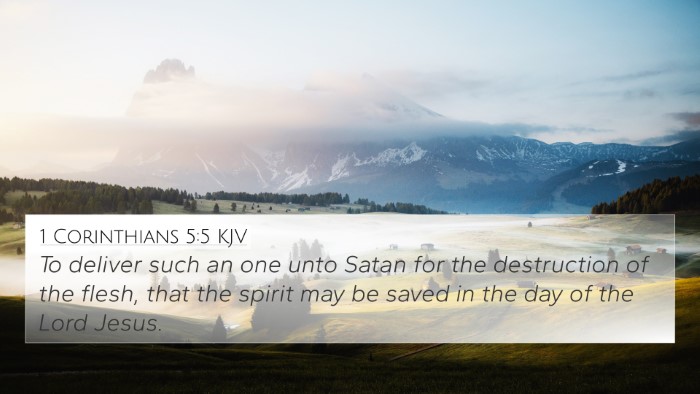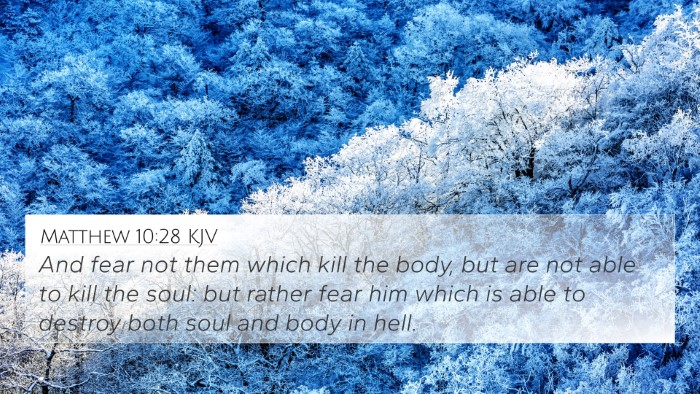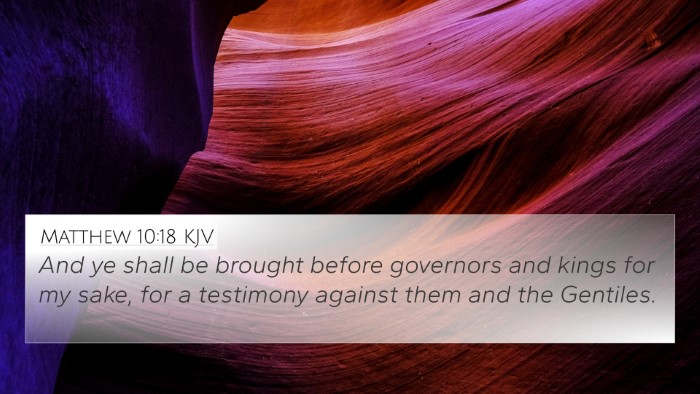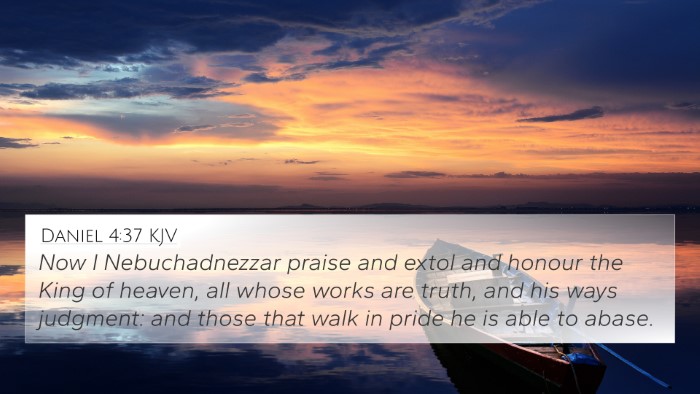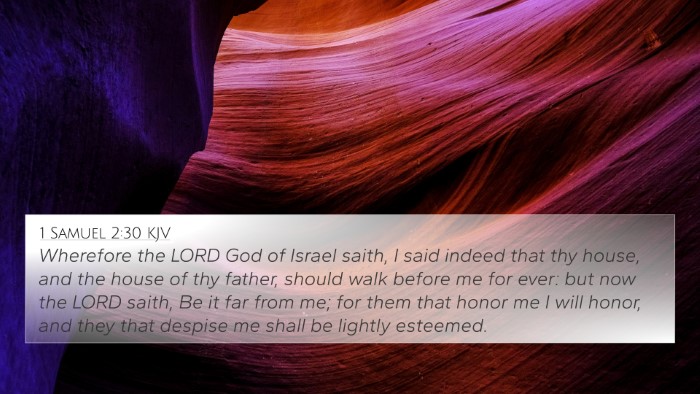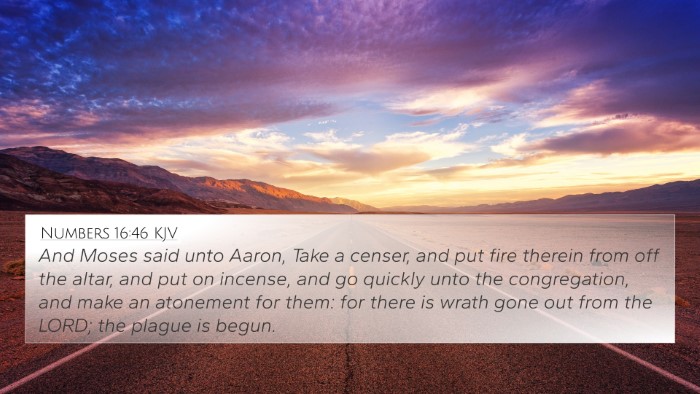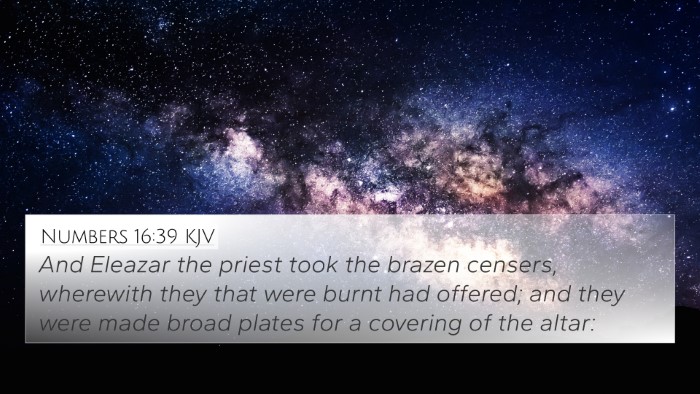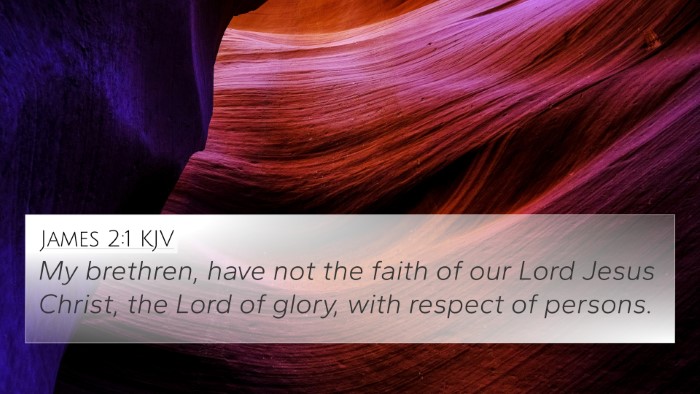Understanding 2 Chronicles 26:18
2 Chronicles 26:18 states: "And they withstood Uzziah the king, and said unto him, It appertaineth not unto thee, Uzziah, to burn incense unto the Lord, but to the priests the sons of Aaron, that are consecrated to burn incense: go out of the sanctuary; for thou hast trespassed; neither shall it be for thine honor from the Lord God."
Verse Context and Summary
This verse describes a significant moment during the reign of King Uzziah of Judah. After experiencing prosperity and military success, Uzziah attempted to take on the priestly role by burning incense in the temple, a duty reserved for the priests, specifically the sons of Aaron. The priests bravely confronted him, emphasizing the importance of his violation against divine order.
Interpretations from Public Domain Commentaries
Insights from notable biblical commentators shed light on the significance of this verse:
- Matthew Henry: Henry highlights Uzziah's pride and presumption in attempting to perform priestly functions. He notes that this overreach set a dangerous precedent, demonstrating how pride can lead to severe consequences, even for those in power.
- Albert Barnes: Barnes emphasizes the duty of the priests and the importance of adhering to God’s established order. He points out that Uzziah’s act was not merely a minor error but a serious violation of sacred protocols that could result in divine judgment.
- Adam Clarke: Clarke discusses the courage of the priests in confronting a king, noting that it reflects their commitment to God’s commandments over human authority. He mentions the cultural and religious implications of Uzziah’s actions and how it could affect the people's relationship with God.
Key Lessons and Themes
From the analysis of this verse, several key themes emerge:
- Divine Authority: The verse emphasizes that certain roles and responsibilities are divinely ordained and should not be transgressed.
- The Consequences of Pride: Uzziah’s pride ultimately led him to act against God’s will, illustrating the dangers of overstepping one's boundaries.
- Courage in Faith: The priests exemplified bravery in defending God's honor, reminding believers of the importance of standing firm in faith when faced with injustice or wrong.
- Consecration and Holiness: This passage points to the necessity of maintaining the sanctity of God's service and the roles within it.
Cross-References with 2 Chronicles 26:18
Several Bible verses relate to the themes found in 2 Chronicles 26:18:
- Numbers 16:3: This verse discusses the rebellion against Moses and Aaron, illustrating the consequences of challenging God’s appointed leaders.
- Leviticus 10:1-2: The narrative of Nadab and Abihu, who offered unauthorized fire before the Lord, highlights the seriousness of unauthorized worship.
- 1 Chronicles 24:1-3: This passage describes the division of the priesthood, reinforcing the importance of proper ordination and roles.
- 2 Kings 15:5: The repercussions of God's judgment on Uzziah, which stem from his unlawful actions.
- Galatians 6:3: A New Testament reflection on pride, warning against self-deceit that parallels Uzziah's downfall.
- 1 Peter 5:5: This verse advises humility, resonating with the theme of pride paralleled in Uzziah’s actions.
- Hebrews 5:4: Discussing the appointment of priests, reinforcing the concept of divine choice and order.
Conclusion
2 Chronicles 26:18 serves as a poignant reminder of the importance of respecting God's established order and the potential consequences of pride and disobedience. By exploring the connections between this verse and others in Scripture, believers can deepen their understanding of divine authority, the role of faith leaders, and the significance of maintaining holiness in worship.
Further Study Tools or Methods
For those interested in exploring the connections between Bible verses further, several tools and methods can enhance your study:
- Using a Bible concordance to locate cross-references efficiently.
- Engaging in cross-reference Bible studies to systematically explore thematic connections.
- Utilizing a cross-reference Bible study guide to organize findings and reflect on the implications of interconnected scriptures.
- Practicing Bible chain references for deeper analysis and exploration of a specific theme across different passages.
